Search Results
Showing results 381 to 400 of 1563
What Does Life Need to Live?
Source Institutions
In this astrobiology activity (on page 11 of the PDF), learners consider what organisms need in order to live (water, nutrients, and energy).
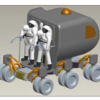
Cooling Off
Source Institutions
In this activity, learners are introduced to challenges of maintaining temperatures while living in space.

Translating an Alien Message
Source Institutions
In this activity, learners work together to interpret an "alien message." The group pretends that this is the only message from an imaginary civilization, so there is no "key" and thus no "correct" wa

Self-Portrait Silhouettes: Activity 1
Source Institutions
In this activity, learners make a photographic image--without a camera!
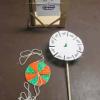
Spinning Illusions
Source Institutions
In this activity, learners construct three optical illusion toys to examine how our brains play tricks on what we see.
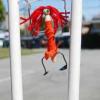
Gymnast
Source Institutions
In this physics activity, learners build a toy with a figure that spins around like a gymnast on the high bar.
How Do Antacids Work?
Source Institutions
You just ate a big meal and feel heartburn coming on. You take an antacid and feel better. Why? Heartburn is caused by stomach juice (an acid) burning the esophagus.
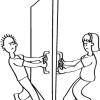
Human Interface Design: The Chocolate Factory
Source Institutions
In this activity about human interface design issues, learners help the Oompa-Loompas of a great chocolate factory solve different problems.
Hazardous Chemicals in Your Neighborhood
Source Institutions
In this environmental science lesson, learners will examine hazardous chemicals and their effects on human health and the environment.
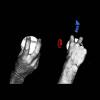
Thrown For A Curve: Pitch Like A Big Leaguer
Source Institutions
You may have tried to throw a curveball or a slider, or even a screwball, with an ordinary baseball and found it difficult to do.

Origami Flying Disk
Source Institutions
In this three-part activity, learners use paper to explore Bernoulli's Principle — fast-moving air has lower pressure than non-moving air.
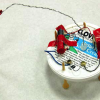
Scribbling Machines
Source Institutions
In this activity, learners explore electronics and motion by making a Scribbling Machine, a motorized contraption that moves in unusual ways and leaves a mark to trace its path.
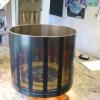
Bike Wheel Zoetrope
Source Institutions
In this activity (posted on April 18, 2011), learners follow the steps to construct a zoetrope, a device that produces an illusion of action from a rapid succession of static pictures, using a 16" bik

Chemistry is Colorful
Source Institutions
In this activity, learners explore materials through paper chromatography.
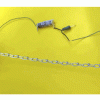
Stretch the Chain and See the Light
Source Institutions
In this activity, learners use their strength to light a light bulb. A chain made from paper clips is placed in series with a battery and flashlight bulb.

Mapping the Classroom
Source Institutions
In this activity, learners discover the importance of maps and scale as they work together to create a map of the classroom.
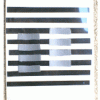
Sliding Gray Step
Source Institutions
How can you make one shade of gray look like two? By putting it against two different color backgrounds! This activity allows learners to perform this sleight of hand very easily.

The Carbon Cycle: How It Works
Source Institutions
In this game, learners walk through an imaginary Carbon Cycle and explore the ways in which carbon is stored in reservoirs and the processes that transport the carbon atom from one location to another

What's the Angle?
Source Institutions
This activity helps learners understand how the angle of the Sun affects temperatures around the globe.

Applying Math to Astronomy
Source Institutions
In this mathematics activity (page 4 of the PDF), learners will explore the relationship between the diameter and circumference of an object.
